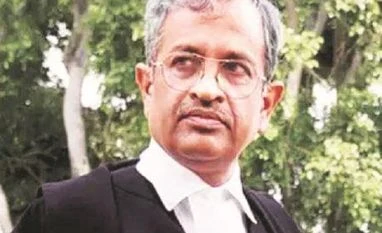SANJAY HEGDE began his career in 1989 as a lawyer with Mulla & Mulla & Craigie Blunt & Caroe. In the Supreme Clourt (SC), he began his career in the chambers of senior advocate G Ramaswamy. A leading voice for civil rights, Hegde believes that if a woman expresses a level of modesty and wants to practise hijab and cover her head, a government cannot say she cannot be educated at government expense. He speaks to Aditi Phadnis on the sedition law. Edited excerpts (with background of the previous orders in brackets):
The operation of the sedition law (Article 124A) has been put on hold by the SC. What does this mean for those in prison under this law and those fighting cases under it?
Those who have been solely charged and arrested under 124A will get bail from the appropriate courts. Those who have other charges in addition will need bail separately for those Sections, but one can anticipate easier scrutiny, since the other Sections might not carry a possible life sentence.
Everyone is in agreement that 124A is a relic of the colonial era. Legal challenges in the past notwithstanding, the law continues to exist. Governments of all complexions have used it. Courts have not seriously thought to curtail its operation. Can you explain this anomaly?
The Section ought to have been repealed immediately after Independence. However, administrators were persuaded that in a newly stabilising country, it ought to remain for some time. Hence, when challenged for constitutionality in 1962, barely 15 years after Independence, a five-judge Bench of the SC upheld it as constitutional, provided some guidelines were followed. In effect, they read down a wide Section, to make it constitutional.
(In 1962, the issue came up before the SC in the Kedarnath Singh versus State of Bihar. A five-judge constitutional Bench overruled the earlier rulings of the high courts and upheld the constitutional validity of Section 124A. However, the court attempted to restrict its scope for misuse. The court held that unless accompanied by an incitement or call for violence, criticism of the government cannot be labelled ‘sedition’. The ruling restricted sedition only insofar as seditious speech tended to incite ‘public disorder’- a phrase Section 124A itself does not contain but was read into it by the court.
The court also issued seven ‘guidelines’, underlining when critical speech cannot be qualified as sedition.
In its guidelines on using the new, restrictive definition of sedition law, the court said not all speech with ‘disaffection’, ‘hatred’, or ‘contempt’ against the state, but only speech that is likely to incite ‘public disorder’ would qualify as sedition.)
However, administrators continued to operate the Section, without the gloss put on it by the SC. Hence, efforts to curtail misuse have largely failed in the face of administrative bull-headedness.
The law officers of the current government argued that the law was necessary. But in the space of a few days, they said the Prime Minister's commitment to civil rights was such that they were ready for a review of the law but requested the court that a senior police officer review cases to prevent misuse. What does this tell us about the intent? Many civil rights bodies in India want the Section to be removed from the statute books in its entirety. That can only be done by legislation that the government has to bring.
I think the central government sent out mixed messages, probably because it had not thought things through. Its political base, that is highly nationalistic, viewed the Section as a catch-all provision for anti-nationals. Courts, however, were getting tired of overbroad misuse of the Section and doubted its continued constitutionality. Considering there are many other options, including the Unlawful Activities (Prevention) Act, the Section really served no great purpose but could not be legislatively abrogated. The government probably wants the courts to strike down the Section and thus, accomplish the desired result.
Couldn’t state governments have announced that whatever the legality of the law, they will never use it, considering it has been used the most against journalists (Vinod Dua for example, because he criticised the government’s handling of the Covid-19 pandemic, or cartoonist Aseem Trivedi) and political dissenters (like Binayak Sen, who was convicted for forwarding a message)?
That’s asking too much from state governments. Regional politicians are among the biggest misusers of the law. As long as a convenient law exists, it will be misused.
Unlock 30+ premium stories daily hand-picked by our editors, across devices on browser and app.
Pick your 5 favourite companies, get a daily email with all news updates on them.
Full access to our intuitive epaper - clip, save, share articles from any device; newspaper archives from 2006.
Preferential invites to Business Standard events.
Curated newsletters on markets, personal finance, policy & politics, start-ups, technology, and more.
)